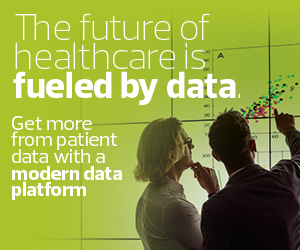Data Is Improving Patient Care and Operational Efficiencies
Healthcare organizations of all sizes, from globally recognized health systems to community-based health centers, are driving operational efficiencies and improving patient care with the help of data.
California’s Community Medical Centers, for example, evolved toward a more cohesive data analytics approach to meet growing internal demand for improved insights to better serve its diverse patient populations. “We don’t operate on guesstimates. That really helps set the tone for how we view data organizationally,” COO Preethi Raghu told HealthTech earlier this year.
In North Carolina, UNC Health’s journey has pushed the democratization of data as a primary goal for the enterprise analytics team.
“There is such a hunger at every level in our organization for insights,” says UNC Health Senior Vice President and CIO Brent Lamm. “We have to figure out how we empower people to access insights and data more easily and quickly.”
As healthcare organizations shift from a fee-for-service reimbursement model to value-based care, enhanced data and analytics will better support clinicians treating patients on a continuum of care rather than via one-time, limited services.
Improving interoperability and making data available across an organization through a modern data platform will empower more users to innovate and set the foundation for the future of expanded use of artificial intelligence and machine learning tools.
EXPLORE: How modernizing data storage leads to better data access in healthcare.
Healthcare Is Ready for Artificial Intelligence
Buzz around generative AI tools such as ChatGPT have dominated discussions at healthcare technology events this year, including the American Telemedicine Association’s annual conference and ViVE. And excitement around their potential uses in healthcare continues to grow.
Kim Swafford, a health industry executive at Microsoft, said during an ATA2023 Annual Conference and Expo session in March that ChatGPT has the potential to improve telehealth delivery by helping with triage, improving patient digital access and aiding clinicians with administrative tasks.
And Bakul Patel, senior director of global digital health strategy and regulatory at Google, said that AI, when paired with human practitioners, will be an “augmenting technology as opposed to a replacing technology.”
For these emerging technologies to work at their best, they need access to high-quality data, and a modern data platform sets the standard to fuel that transformation.
It’s clear that healthcare organizations won’t be slowing down when it comes to AI-enabled solutions: 85 percent of healthcare executives have an AI strategy, according to a 2021 Optum survey.
To address healthcare workforce challenges now, leaders are already turning to AI-powered tools: Nearly 48 percent say their organization is currently using such solutions for the workforce, and more are considering or evaluating them, according to a 2023 survey by the Health Management Academy.
READ MORE: Healthcare leaders need to take control as AI surges into a new era.
Healthcare Is Taking the Next Steps in Its Data Journey
Healthcare organizations that have already moved toward leveraging more cloud capabilities, whether for their electronic health record systems or financial data, are poised to adopt modern data platforms.
They don’t have to go on their data journeys alone: They can look to peers in the field who’ve found success in their transformations and engage partners with industry-specific expertise.
As Pierce says, “A healthcare organization that has its data together, organized and understood in a modern data platform can help build a better future. This is no longer just nice to have; it’s critical for any healthcare organization’s long-term success.”











